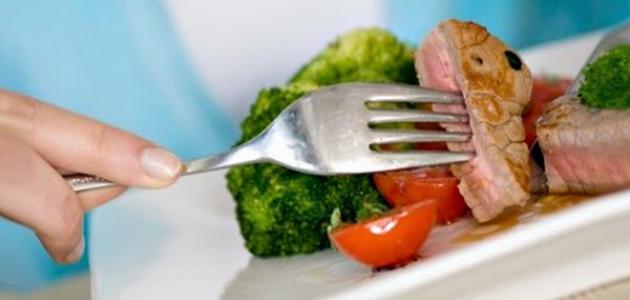In the fast-paced world of health and nutrition, finding a diet that truly supports your colon's well-being can be a challenge. But fear not, because we are about to embark on a journey to discover what is a good diet for your colon. Throughout this comprehensive article, we will delve deep into the vital components of a colon-healthy diet, shedding light on the foods and practices that can help you achieve optimal colon health. Whether you've been curious about how to support your colon or are dealing with specific concerns, this guide will provide you with the knowledge you need. Join us on this quest to unlock the secrets of a diet that cares for your colon, because a happy colon leads to a healthier you.
What is a Good Diet for Your Colon?
The colon, an essential part of your digestive system, plays a crucial role in maintaining your overall health. A healthy colon can significantly impact your well-being, and the food you consume is central to its health. In this comprehensive guide, we will explore the best diet for your colon, highlighting the importance of specific nutrients and dietary choices. Whether you're looking to maintain your colon health or address existing concerns. Thus, we will provide you with valuable insights to support your journey.
The Foundation of Colon Health
To understand what constitutes a good diet for your colon, we must first grasp the basic principles that underlie its health. The colon, also known as the large intestine, serves as the final stop in the digestive process, absorbing water and electrolytes while forming and expelling waste. A healthy colon ensures efficient elimination and reduces the risk of conditions such as constipation and colorectal cancer. Moreover, it plays a critical role in maintaining the balance of your gut microbiome.
A good diet for your colon begins with a focus on fiber-rich foods. Fiber acts as a natural broom, sweeping through your colon, removing waste, and supporting regular bowel movements. Foods like whole grains, fruits, and vegetables are rich in dietary fiber, making them essential additions to your diet.
Fiber - The Colon's Best Friend
Fiber, the unsung hero of colon health, deserves a closer look. Soluble and insoluble fiber, both found in various foods, serve unique purposes in maintaining colon health. Soluble fiber dissolves in water, forming a gel-like substance that aids in controlling cholesterol levels and stabilizing blood sugar. Insoluble fiber, on the other hand, adds bulk to your stool and facilitates its passage through the colon.
Incorporating a variety of fiber sources, such as oats, beans, and leafy greens, is crucial for a well-rounded colon-healthy diet. Additionally, it's important to increase your water intake when consuming high-fiber foods to prevent digestive discomfort.
Probiotics and Prebiotics
Colon health is closely tied to the balance of the gut microbiome. Probiotics and prebiotics are essential in this regard. Probiotics are the beneficial bacteria that reside in your gut, while prebiotics are the non-digestible fibers that nourish these friendly microorganisms.
Including probiotic-rich foods like yogurt, kefir, and fermented vegetables in your diet can help maintain a harmonious gut microbiome, which, in turn, supports your colon's health. Prebiotics, found in foods like garlic, onions, and bananas, provide the necessary sustenance for these beneficial bacteria to thrive.
The Role of Antioxidants
Antioxidants are compounds found in various foods that protect your cells from damage caused by free radicals. They play a vital role in overall health and have a positive impact on colon health. Foods rich in antioxidants, such as berries, dark leafy greens, and nuts, should be a regular part of your diet. These antioxidants help reduce inflammation and protect against the development of colon diseases.
The Importance of Lean Proteins
While plant-based diets are often associated with colon health, lean proteins also have a role to play. Salmon, chicken, and lean cuts of beef are excellent sources of protein without the high saturated fat content found in some other meats. Protein is essential for cell repair and overall body function, making it a vital component of a balanced diet that supports your colon.
What to Avoid
Equally important as knowing what to include in your diet is knowing what to avoid. Processed foods high in sugar, saturated fats, and artificial additives can contribute to colon health problems. Excessive consumption of red and processed meats has been linked to an increased risk of colorectal cancer. It's best to limit these foods or, ideally, avoid them altogether.
Hydration and Colon Health
Adequate hydration is key to maintaining colon health. Water plays a critical role in softening stool and promoting regular bowel movements. It also aids in the absorption of nutrients, ensuring that your body gets the most out of the food you consume. Make it a habit to drink plenty of water throughout the day to support your colon's well-being.
In conclusion, a good diet for your colon is built on a foundation of fiber, supported by probiotics, prebiotics, antioxidants, lean proteins, and a focus on hydration. By including a variety of fiber-rich foods, maintaining a balanced gut microbiome, and reducing your intake of processed and high-sugar foods, you can promote colon health and reduce the risk of colon-related conditions.
Remember, your diet has a significant impact on the health of your colon, and making informed dietary choices is a proactive step towards a healthier you. Whether you're looking to prevent colon issues or support an existing condition, your diet is a powerful tool in your arsenal.
Investing in the health of your colon is an investment in your overall well-being. So, embrace the natural goodness of fiber, the power of probiotics, and the protection of antioxidants. Your colon will thank you for it, and you'll enjoy the benefits of a healthier, happier you.

